- Home
- Lisa Appignanesi
The Memory Man Page 2
The Memory Man Read online
Page 2
It was soon after the Anschluss that his father had disappeared. He had never returned. Bruno was no longer sure he had missed him at the time. Not right away in any case. There were his mother and his sister to tend to. With his father gone, he was the man of the house, self-important despite his short trousers. He revelled in the new responsibility. But later, much later, when he was already in his forties, older than his father had been at the time of his disappearance, an acute sadness had taken him over. It was when the San Diego lab had won that huge investment and he had all at once recalled – for the first time – that it was his father who had first shown him a drawing of a nerve cell, so intricately branched that it trapped the eye like a lure.
Early spring, it had been. They had all spent the day in the country. A family picnic. At one point he and his father had lain under a tree together and looked up, marvelling at the intricate fretwork of boughs and branches, not yet in leaf, through which the sky glowed a deep clear blue. When they got home that evening, his father had pulled a thick book from his library shelves and shown him a delicate drawing that repeated the spread of branches and boughs. This, his father had told him, is a neuron, a cell in your brain. Bruno had gazed at the spun-sugar delicacy of the drawing: a mysterious tracery that his father told him mirrored the complexity of human thought.
Yes, it was his father who had infected him with the excitement of science, had even way back then talked of sending him to the technically progressive Realschul instead of the more classical Gymnasium. Perhaps it was he who had spoken of science as a search for principles of law and order in the universe. Perhaps not. Bruno no longer knew.
He wasn’t looking at the palace any more. He was walking, walking quickly, his summer jacket ruched, his hands balled into fists. Walking with his head down, like an angry lad or an absentminded don. He walked past chestnut-lined gardens and statuary, bronze horsemen and flower beds, past regal arches and towering spires, past a roll-call of names: Bankgasse, Lowellstrasse, Schottengasse, Warhingerstrasse… How he arrived at the particular street with its uniform stone buildings, he didn’t know. His body had taken him, and it was the sudden slope that alerted him. Memory triggered by his legs along ancient pathways to the cerebellum. He was staring up, up past decorated stonework, at a second-floor window which was home. The curtain fluttered. A woman appeared. Her soft, gold-brown hair curled slightly at the shoulders. Her summer dress was flowered and as she reached up to unlatch the window, her bare arm glimmered smooth in the sunlight.
‘Mami. Mamusia,’ his lips formed round the syllables.
Warmth coursed through his veins, a happy anticipation. He waved, prepared to race into the courtyard and up the stairs.
And then there was a kick and thud at the back of his knees. He crumbled. The building heaved and turned upside down. He started to shout, shouted louder, but the shouting didn’t reach his mouth that had gone bone-dry. The screams exploded in his head instead, one explosion with each kick and thump – in his stomach, his groin, his back, his face. Each punch came with the punctuation of vile curses he wasn’t allowed to use. All of them ending in the word ‘Jude’ – ‘Jew’ until the taste of blood was the taste of that word, and the world ended.
*
He hurt everywhere. His eyelids were too heavy to move. But he heard her voice, soft with meaning. There was a smell too, which tickled his nose. Antiseptic, a pomade for his cuts and bumps. She was talking to someone. Talking about Nazi thugs and a beating endured. Talking to his father. His father was back. A lump came into his throat. He forced tears away and eyes to open.
Bruno focussed through harsh glare. Focussed with difficulty as the kaleidoscope twisted and turned through time. He was in a cubicle of a room. Various medical appliances crowded around him. Strangers stood at the foot of his bed. A man in a white coat. A doctor. Not his father. And a woman, a woman with clear blue hooded eyes. She met his.
‘He’s awake, Doctor. Awake.’ She was speaking in English. Careful but colloquial English, with only the hint of an accent. ‘What a relief.’
The doctor was taking his pulse and murmuring something about possible concussion.
‘I saw it all,’ the woman said. ‘I was on my way to visit the Freud Museum and I saw it.’
Bruno made a croaking sound.
‘Yes. Yes. A youth on a skateboard. Wearing one of those peaked caps they all turn backwards and a baggy sweatshirt with a skull and bones on it. He crashed into you. Just up the street. Didn’t mean to, I don’t think. You stepped backwards, and he couldn’t stop. Nasty. He got scared when you toppled, and he whizzed away. Then this woman rushed out of the building. She’d seen it too. From her window. She called an ambulance. We were so worried. And I recognized you. From the hotel. Someone pointed you out. Someone who admires you. Professor Lind, isn’t it?’
He signalled agreement and raised himself in the bed. His body creaked but moved. Nothing broken. That was good. Just this fog in his head to get rid of. And too many ghosts. Too many dreams in this city of dreams. He concentrated on the woman. Yes, he recognized her now. She was the one who had called out the name. But she couldn’t know how it had affected him. Like a trigger aimed at an unused part of his brain.
‘I’m Irena Davies, by the way.’
‘And you’re a neuroscientist?’
There was perhaps too much gruffness or scepticism in his unused voice, since she laughed with a lilt that turned into nervousness.
‘It’s that obvious, is it? No, no. I’m a…’
‘Not obvious, no. It was just that you’d mentioned…’
‘I see. Freud. Not your kind of neuroscience.’
He demurred, would have added something, but the doctor intervened.
‘You should be still. Very quiet. Nothing is broken, but we must check…’ He tapped his own head. ‘You rest now.’
‘Yes, you took quite a fall. Bumped your head. I’ll go back and alert the organizers. They’ll be devastated. We’ll all be… Are there any messages you’d like me to convey?’
When he didn’t answer, she hurried on, ‘I’ll come and see you tomorrow, if you like. Hope you feel better quickly, Professor Lind.’
She slipped away, and he closed his eyes again, happy to be alone. Happier still, perhaps, to be relieved of the burden of speech giving. He had made far too many in his time. They would find someone perfectly adequate to stand in for him.
Funny how he had altogether forgotten that attack in front of the childhood apartment until this afternoon with its painful near repetition. Forgotten because so many worse events had come in its wake, displacing it in a sequence of horrors. It must have been the physical act of falling which had awoken the young Nazi thugs who had leaped on him in 1938. No, no…that wasn’t quite right. It was the whole associative sequence, this city, the street, the woman bending towards the window, one thing after another, a whole series of cues activating the neural networks to give him the memory again.
The city acted on him like Penfield’s electric probe, all those years ago in Montreal, when he had watched the great doctor operating on his epileptic patients, their skulls unwrapped to his prodding. As the probe moved across different areas of the brain, they re-enacted their forgotten pasts for him, smelling it, speaking it.
Yes, his mother used to stand at the window like that. Waiting for him to come home from school. He would see her and then race up the stairs impatient for the cool gentle hand ruffling his hair, the scent of sweetened cocoa waiting for him on the hob. That day, there had been no racing. He was carried, instead, a small figure wracked by silent sobs and pretending they didn’t exist, though his shoulders heaved. The doctor arrived. Voices were hushed. Except for his little sister, who cried and cried. He remembered that. And Mamusia was all tension beneath the show of calm, as she dabbed at the blood that oozed from his brow.
The attack on him must have taken place not long before his father had gone. Had been taken, in fact, by two Nazi officers while Bruno was a
t school. When he asked where he had been taken, no answer came. But in the adults’ whispers, he kept hearing the word ‘camp’, which seemed harmless enough, so he expected his father’s return at any moment. At first, when his mother announced that they were leaving Vienna, he protested stubbornly saying they had to wait for ‘Vati’ to come home. Did he feel responsible in some way? Had the forgotten attack on him propelled his fiery father into some mad attempt at retribution?
He would join them, his mother promised.
Bruno shifted in his bed with growing restlessness. He shouldn’t have come to this city. That was palpably clear given where he was lying only a few hours after his arrival. Yet the invitation had been so flattering. It had also come just as he was emerging from the cocoon he had inhabited since his wife’s death. Not that he had emerged a butterfly. Far from it. But something about the proposal had stirred his curiosity. Perhaps, without wanting to admit it to himself, it was precisely to revisit those now dim years of early childhood that he had come. His wife, who had anchored him to his Western life, was gone, and her death seemed to bring all those other earlier ones in its train. As if he had neural nets that encoded death for him, and Eve’s had somehow activated the whole system. Then, he was also getting old. And as the novelists always implied when desire goes, memories come. But that wasn’t altogether right either: it was the chemicals which emotion produced that helped to bind memories in the brain.
So much they still didn’t know, despite the genetic information. Despite the new technologies with their astonishing speed of calculation that provided those startling images of the brain.
Maybe he had come here to act as the subject of his own memory experiment. Bruno chuckled to himself. A scientist’s ultimate challenge had always been to test his hypotheses by performing his experiments on himself. If he travelled the byways of his past now, he could assess whether new memories cropped up, and by what they were triggered; see too whether old recollections were altered, and decay had set in. Though he had probably left it all too late: the decay had taken over and he could no longer monitor himself. For instance, he hadn’t remembered that the parental home was on the same street as Professor Freud’s, but as soon as that Davies woman had mentioned it, he recalled his parents’ bringing it up, indeed had an image of his mother talking to a quaintly hatted woman on the street and saying, ‘That was Frau Freud, Schätzchen. A kind lady. They live above the butcher’s.’
But he gave little scientific credence to the Freudian unconscious. It was too elaborate a concept, even in the little he knew of it. Not efficient. As far as he was concerned, to be unconscious was a state, the brain’s way of preserving the body in an emergency. The brain was a voracious consumer of oxygen and glucose. It consumed at ten times the rate of other tissues. Fall down unconscious, become horizontal, and it takes less energy to pump the blood through. Just for a few minutes, mind, otherwise the comedy is quickly over.
Bruno lay back, altogether horizontally on white sheets. Was it because of his intimate childhood links with Vienna that he had always kept away from Freud, a figure who was part of an internal landscape he would have preferred to obliterate? Or did he simply share in the usual neuroscientific consensus – that Freud was old hat, at best misguided, at worse a wrong-headed charlatan?
That very question, he suspected, was already one that rose with the city’s polluted vapours, infecting him at every turn.
‘Herr Professor Lind.’ A nurse stirred him from darkening thoughts. With able movements and a no-nonsense smile, she helped him into a wheel chair he didn’t want to use and propelled him to an X-ray room, where he underwent a CT scan.
A few hours later, without anyone being the wiser, Bruno Lind slipped out of the hospital, effectively discharging himself. Yes, he had a mild headache, and he was bruised and stiff, but his vision wasn’t disturbed, nor did he feel dizzy or nauseous. As for memory, he seemed to be suffering from an influx, rather than a loss. Whatever harm his fall had caused, if any, he would tend to it himself when and as the symptoms manifested themselves. He was too old now for the luxury of time lost lying about, particularly in environments he had no wish to be in. These last years he had spent too much of the wrong kind of time in hospitals.
He took a taxi back to the hotel. After a shower, he thought of heading off into the city. No one, but no one, would know for once where he was. The anticipation of that, for a man who lived within a strict schedule of duties and commitments, was delicious.
Instead, with a kind of perversity, he found himself walking towards the mock-Gothic university building on the other side of the Ring, where – all things being equal, which they weren’t – he would at this very moment have been coming to the climax of his address to the audience.
The hall was large and filled to capacity. Before focussing on the speaker, his eyes were drawn to the magnificent ceiling where the seven pillars of wisdom emerged in the high decorative style of Gustav Klimt. Looking beyond the sea of heads, he now recognized the burly bearded figure of Andrew Wood behind the large oak podium. An inspired choice to replace him, Bruno thought. In fact, Wood should have been asked in the first place to do the keynote. He was far more adept than Bruno himself at blending the political with the scientific. And with his easy style of address he could draw an accessible picture – even for the lay non-English speaker – of the complexities of research into the hundred billion nerve cells and the hundred trillion interconnections that go to make up a human brain.
A memory man, just as Bruno had been at points in his long career, Wood had evidently been talking about his chicks, the model-systems his lab preferred, but now he was evoking the ageing brain and the abnormal amyloid protein build-ups found in Alzheimer’s sufferers. Like the unabsorbed waste products of a city or a nation’s history, Wood was saying, these abnormal build-ups were destructive and un-recyclable.
Bruno could see where the analogy was heading. Austria, like its neuroscientists, had to contend with this waste matter of the past, the plaque in the system, and somehow disperse it, or the patient’s and the nation’s ability to function, which was also an ability to remember, would be utterly destroyed. Without an agreed-upon memory, there was no possibility of community. Austria’s full role in Europe, Wood was suggesting, would only come when the country ceased to see itself solely as a victim state of Nazi annexation. For too long Austria had hidden behind its supposed ‘victim’ status. It now had openly to confront its active role, not only in the wartime atrocities committed against Jews and political dissidents but also in the forced takeover of never-returned property.
Wood paused. A message had been passed to him. As he read it, he smiled broadly and gestured towards the back of the large auditorium. Simultaneously, a young man approached Bruno and asked whether he would be good enough to follow him. Moments later, Bruno found himself on the stage shaking hands with Wood, gazing down onto a sea of expectant faces, listening to a far too fulsome introduction to his own modest achievements. He glanced at his watch. Five minutes…just enough time to thank Wood and offer his apologies.
It surprised him then, when he heard himself saying: ‘Friends, our science has advanced by leaps and bounds in the last decade. But the links between mind and brain remain deeply mysterious. Today…’ He moved for a moment into German and felt the familiarity of the speech on his tongue, despite the sudden strain on his lips and cheek as long dormant muscles were prodded into action.
‘Today, I suddenly found myself in front of my childhood home. I had no real intention of going there. Nor, if I had set out to find my way, do I believe I would have remembered the direction quite so efficiently… As Shakespeare might have said, if he joined us now and didn’t have a wondrous way with poetry “There are more things in our synapses and hippocampus than are dreamed of in our science,” dear friends. Yes, we have made great strides, but our understanding of memory, which must be the foundation of mind, is still in its infancy…’
2
Irene bent towards the mirror and wiped the excess mascara from her lashes, then deftly reapplied maroon-red lipstick. She added a hint of blusher on cheeks that had grown gaunt. She looked tired. The strain of the day was scattered round her face like used ammunition. Shadows, crevices. Pah. There was nothing for it. She shrugged for the benefit of the woman beside her and went back into the fray.
The fray consisted of the select crowd gathered in the hotel banqueting room for after-dinner coffee. It was clear that, sooner or later, one of them would discover that she was here under false pretences. Irene smoothed the skirt of her best suit, adjusted the amber pendant and put on her opaque smile. She reminded herself that not all her pretences were false . She was, after all, someone.
As she wound past little groups engaged in intent conversation, Bruno Lind greeted her from the head table, where he still sat flanked by the mayor and some other notables. She nodded in return.
Funny how she couldn’t make up her mind about the man. Maybe it was simply the difference between him this afternoon – frail, supine, pale, first on the ground then in the hospital bed – and now. Now the vulpine face, with its clear intent eyes and bristling white-grey hair, was full of energy. The kind of energy that burns. Yes. It was a face that might have been painted by some old master, one who specialized in the lines and furrows of truculent character. The fall, which had seemed so serious, had evidently had little effect on this erect, barrel-chested figure, more like an aging pugilist than a man of the mind. And he had thoroughly disproved the sad tale of accident and slow recovery she had told the worried conveners.
What she had forgotten was that all these Westerners worked out, even if their names were preceded by the word ‘Professor’. Or maybe this one had tried some of his own remedies ahead of any clinical trials. Like Picasso with his monkey glands. Or that strange German, Frossman, she had read about, who had stuck a tube up the artery in his wrist to prove his theory that it would reach the heart. And so, at the risk of suicide, had become the founder of angioplasty.

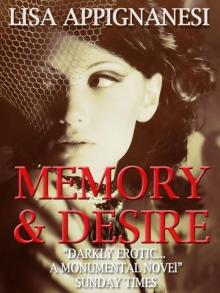 Memory and Desire
Memory and Desire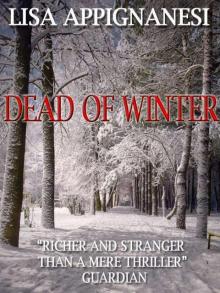 The Dead of Winter
The Dead of Winter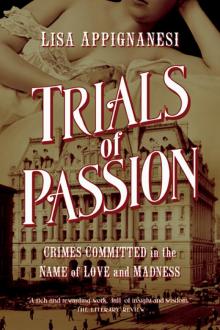 Trials of Passion
Trials of Passion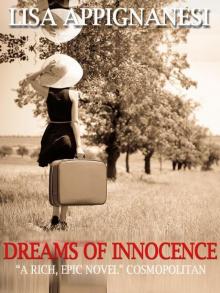 Dreams of Innocence
Dreams of Innocence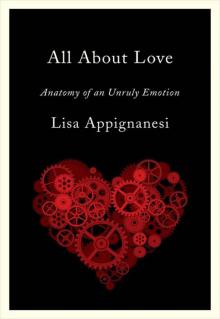 All About Love: Anatomy of an Unruly Emotion
All About Love: Anatomy of an Unruly Emotion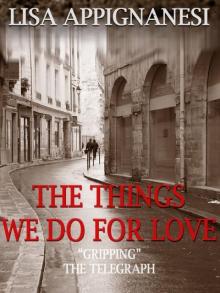 The Things We Do For Love
The Things We Do For Love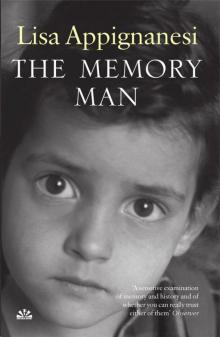 The Memory Man
The Memory Man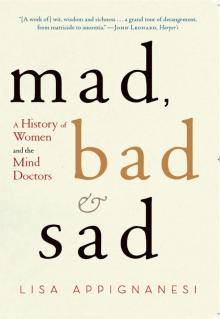 Mad, Bad, and Sad: A History of Women and the Mind Doctors
Mad, Bad, and Sad: A History of Women and the Mind Doctors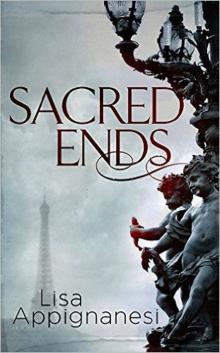 Sacred Ends
Sacred Ends Paris Requiem
Paris Requiem Sanctuary
Sanctuary A Good Woman
A Good Woman